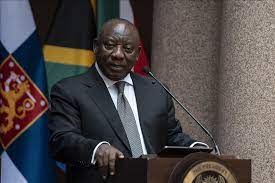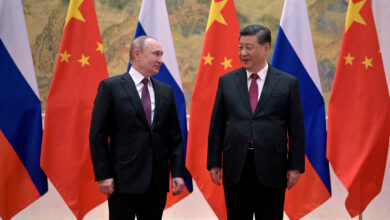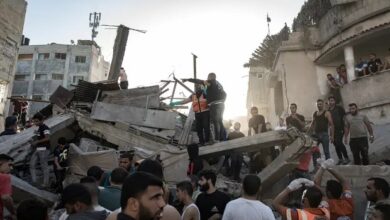After an investigation, Cyril President Ramaphosa claims that South Africa did not provide weapons to Russia
According to President Cyril Ramaphosa, an independent panel established to look into reports that South Africa had supplied weapons to Russia during that country’s continuing war with Ukraine had found no evidence to back up such assertions.
In his address to the country, Ramaphosa said that remarks from many sources had utilized these accusations to question South Africa’s position on the war in Russia and Ukraine. Reuben Brigety, the US ambassador to South Africa, originally aired the accusations in May at a press conference at the US embassy in Pretoria.
According to Brigety, the US possesses intelligence showing that the Russian ship Lady R had been armed when parked at the naval facility of Simonstown on the South African coast in the latter part of the previous year.
Reuben’s comments caused escalated hostilities between the US and South Africa, and the ambassador eventually offered an apology when South Africa made clear declarations about refusing to submit to US “bullying.” Ramaphosa appointed a retired judge to lead an independent investigation to determine the validity of the claims, and he pledged to take swift legal action if any misconduct was found.
Ramaphosa highlighted some of the conclusions of the panel headed by Judge Phineas Mojapelo and said that “the allegations leveled against our country had a damaging effect on our currency, economy, and our standing in the world.” Adv. Leah Gcabashe SC and Enver Surty, a former politician, were the other panelists.
“After conducting its examination, the panel discovered no proof that any weapons were placed onboard the ship Lady R for export. The panel concluded that there was insufficient evidence to prove that the ship was carrying weapons from South Africa to Russia. The ship’s arrival in Simonstown was determined by the panel, according to Ramaphosa, “to deliver equipment that had been ordered for the South African National Defence Force in 2018 by Armscor, the country’s arms procurement company.”
According to the terms of the contract for the delivery of the armaments, neither Armscor nor the South African National Defence Force had any influence over the method used by the equipment’s supplier to deliver the goods to South Africa.
According to him, the panel visited the naval facility in Simonstown over the course of its investigation and subpoenaed roughly 50 witnesses from every relevant branch of government. For review, the panel received more than 100 papers.
Ramaphosa stated, “A number of entities and persons that had publicly claimed to have information on this matter were invited to make submissions to the panel, but many had either failed to do so or said they had no independent knowledge of the relevant facts.” Ramaphosa did not specifically mention Brigety in his statement.
“The issuance of licences for the importing and exportation of conventional weaponry is governed by specific rules in South Africa. The importation of the equipment that was brought by the ship received all necessary permissions. There was no arm export license obtained, and no armaments were shipped. Despite the lack of proof of criminal activity by any of the parties involved, the panel did draw conclusions and suggestions about how the National Conventional Arms Control Committee should operate.
Additionally, it offered advice on how to strengthen the lines of communication between ministers and other government representatives, as well as the effectiveness of the relevant administrative procedures.
Although his office will provide an executive summary of the report to the public on Monday, Ramapohosa said that certain portions of the study contain sensitive material and would stay classified.
“I have considered the laws that both compel openness and transparency and demand that some material that may be detrimental to the defense and security of the Republic be kept secret and private in making the decision not to disclose the (full) report. “To disclose the specifics of the equipment offloaded would jeopardize critical military operations and endanger the lives of our soldiers,” he warned.
The president said that a strategy for implementing the panel’s suggestions and conclusions regarding the effectiveness and efficiency of the relevant administrative and marine transport systems would be created.







